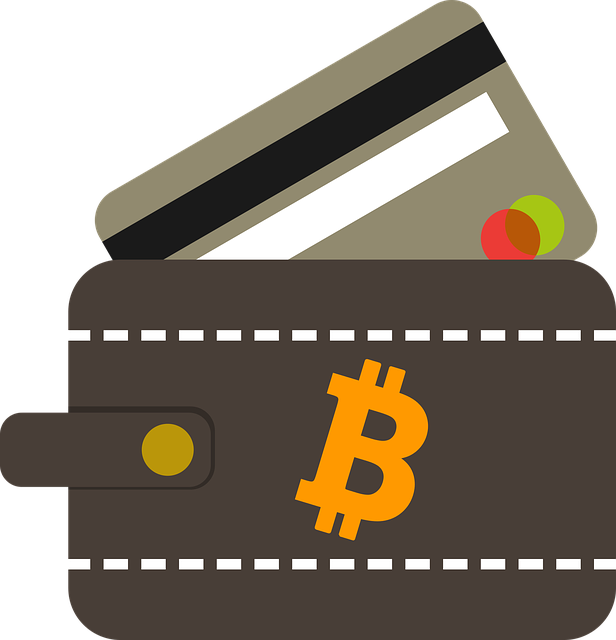Understanding Crypto Wallets: Types, Security, and Best Practices
Author: Jameson Richman Expert
Published On: 2025-05-09
Prepared by Jameson Richman and our team of experts with over a decade of experience in cryptocurrency and digital asset analysis. Learn more about us.
A crypto wallet is an essential tool for anyone looking to invest in or utilize cryptocurrencies. Understanding the different types of wallets, their security features, and best practices can significantly enhance your crypto experience. This article will delve into the various types of crypto wallets, their functionalities, and how to keep your digital assets secure.
First, let's look at the main types of crypto wallets. The two primary categories are hot wallets and cold wallets. Hot wallets are connected to the internet, making them convenient for frequent transactions. They are typically used for trading on exchanges and for daily transactions. Examples of hot wallets include web wallets and mobile wallets. On the other hand, cold wallets are offline storage options, providing higher security. They include hardware wallets and paper wallets. While cold wallets are not as convenient for day-to-day transactions, they are ideal for long-term storage of cryptocurrencies.
When choosing a crypto wallet, security should be your top priority. You should always look for wallets that offer two-factor authentication (2FA) and encryption features. Additionally, consider wallets that have a good reputation in the community and provide regular updates. For instance, wallets like Ledger and Trezor are well-known for their security features and user-friendly interfaces. For more information on the future of crypto wallets and their security, check out this comprehensive guide.
Another critical aspect of crypto wallets is the ability to back up your wallet. This ensures that you do not lose access to your funds in case of device failure or loss. Most wallets offer a recovery phrase or seed phrase during setup. It's vital to write this down and store it in a safe place, as anyone with access to this phrase can control your wallet and its contents.

Types of Crypto Wallets
Let’s explore the different types of wallets in detail:
- Web Wallets: These are accessed through a browser and are often provided by cryptocurrency exchanges like Binance and Bybit. They are user-friendly and suitable for beginners. However, they are more susceptible to hacking attempts. For instance, if you're interested in trading, you might want to register on Binance using this link to start using their web wallet. It’s important to ensure that you are on the correct website, as phishing attacks often target users of web wallets. To enhance security, use only reputable exchanges and enable all available security features.
- Mobile Wallets: These wallets are apps installed on your smartphone. They offer convenience for on-the-go transactions. However, similar to web wallets, they can be vulnerable to malware. It's important to download wallets from reputable sources, and always keep your mobile operating system updated to the latest version to mitigate security risks. Additionally, consider enabling biometric security features, such as fingerprint or facial recognition, for added protection.
- Desktop Wallets: These are software programs downloaded on your PC. They offer more security than web wallets but are still vulnerable to malware attacks. Always ensure your computer is secure by using firewalls and antivirus software, and consider using a virtual private network (VPN) when accessing your wallet. Regularly updating your wallet software and operating system can also help protect against vulnerabilities.
- Hardware Wallets: These are physical devices that store your cryptocurrencies offline. They are considered the safest option for long-term storage. Popular hardware wallets include Ledger and Trezor. These devices are designed to be immune to malware attacks, making them a preferred choice for serious investors. Additionally, many hardware wallets come with built-in screens to verify transactions, which adds an extra layer of security. Always purchase hardware wallets directly from the manufacturer's website to avoid tampering.
- Paper Wallets: This involves printing your public and private keys on paper. While this method keeps your keys offline, it is essential to store the paper securely, as losing it means losing access to your funds. Additionally, be cautious about how you generate your paper wallet; using a secure, offline generator is crucial to avoid exposure to potential online threats. Consider using a dedicated printer and avoiding public Wi-Fi when creating your paper wallet. Secure storage solutions, such as safe deposit boxes, can be effective for keeping your paper wallet safe.
Effective Wallet Usage
Once you have chosen the right type of wallet for your needs, it's also crucial to understand how to use it effectively. For instance, when making transactions, always double-check the wallet address you are sending funds to. Crypto transactions are irreversible, and sending funds to the wrong address can lead to permanent loss. Utilize features like QR codes for scanning wallet addresses to minimize typing errors.
Additionally, it's advisable to limit the amount of cryptocurrency stored in hot wallets. Keep most of your funds in cold wallets, which are far less susceptible to hacking. For day-to-day transactions, you can maintain a small amount in a hot wallet for convenience. Regularly transfer excess funds to a cold wallet for added security.
Understanding Risks and Security
You should also be aware of the potential risks associated with different wallets. Phishing scams are common in the crypto space, where attackers attempt to steal your wallet credentials by impersonating legitimate services. Always check the website URL and never click on suspicious links. It's also wise to use bookmarks for important sites to avoid falling prey to look-alike phishing websites. Consider using a password manager to create and store strong passwords for your wallets and accounts.
Moreover, consider using multiple wallets. This strategy can help you diversify risk. For instance, you can use a hot wallet for daily transactions and a cold wallet for long-term storage. Some users prefer to have different wallets for different cryptocurrencies, which can also help in managing their assets more efficiently. This segmentation can reduce the risk of losing all your funds in a single attack.

Enhancing Your Trading Strategy
If you're new to crypto trading, learning about crypto signals can also be beneficial. Crypto signals provide insights into the market and can guide you on when to buy or sell cryptocurrencies. For a more in-depth understanding, refer to this comprehensive guide on mastering crypto signals. Utilizing these signals can provide an edge in trading strategies and market movements, allowing you to make more informed decisions based on market analysis.
Furthermore, it's essential to stay updated with the latest trends and best practices in the crypto world. Joining online communities and following reputable sources can help you learn and share knowledge with other crypto enthusiasts. Forums such as Reddit and Telegram groups can provide invaluable insights and peer support. Engaging with the community can also expose you to new tools and strategies that can enhance your trading experience.
Conclusion
In conclusion, understanding crypto wallets is crucial for anyone looking to navigate the world of cryptocurrencies effectively. By familiarizing yourself with the different types of wallets, their security features, and best practices, you can protect your digital assets and make informed decisions in your crypto journey. Remember to always prioritize security, stay informed, and practice good habits when managing your cryptocurrency. Continual learning is key in this rapidly evolving landscape.
For those interested in trading, consider using reputable exchanges such as MEXC or Bitget. You can register on MEXC using this link or on Bitget using this link. These platforms offer various features and tools that can enhance your trading experience, including advanced charting tools and market analytics. Always verify the security measures and user feedback for any exchange before committing your assets.
As the cryptocurrency landscape continues to evolve, staying informed and adapting to new technologies will help you succeed. Keep exploring, learning, and trading responsibly! Engaging in continuous education is vital in a space that is ever-changing, so take advantage of resources like online courses and webinars, and consider attending industry conferences and meetups to expand your network.
Additional Security Measures
Beyond the basic security practices outlined, consider implementing additional measures to further protect your crypto assets. Use multi-signature wallets for added security, which require multiple private keys to authorize transactions. This feature is especially useful for businesses or partnerships managing shared funds. Additionally, consider using hardware wallets that incorporate biometric authentication methods to enhance security.

Legal and Tax Considerations
It is also important to understand the legal and tax implications of holding and trading cryptocurrencies in your jurisdiction. Many countries require individuals to report their crypto holdings and any capital gains for tax purposes. Keeping accurate records of your transactions will facilitate compliance and help you avoid potential legal issues. It is advisable to consult with a tax professional who specializes in cryptocurrencies to ensure you meet all legal obligations.
Emerging Technologies in Crypto Wallets
The cryptocurrency landscape is constantly evolving, and new technologies are emerging to improve wallet security and functionality. Decentralized finance (DeFi) wallets, for example, allow users to interact with DeFi protocols directly from their wallets, increasing both functionality and convenience. Additionally, the rise of biometric authentication methods, such as fingerprint scanning or facial recognition, promises to enhance wallet security even further. Keeping an eye on trends like wallet integration with artificial intelligence (AI) for predictive analytics may also provide future opportunities for users.
Final Thoughts
In conclusion, understanding crypto wallets is crucial for anyone looking to navigate the world of cryptocurrencies effectively. By familiarizing yourself with the different types of wallets, their security features, and best practices, you can protect your digital assets and make informed decisions in your crypto journey. Remember to always prioritize security, stay informed, and practice good habits when managing your cryptocurrency. Continual learning is key in this rapidly evolving landscape.
Stay vigilant, stay educated, and most importantly, enjoy your journey in the fascinating world of cryptocurrencies!